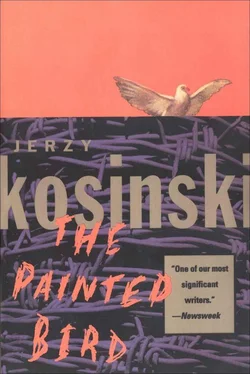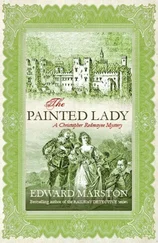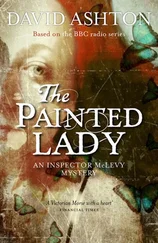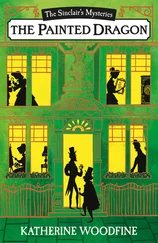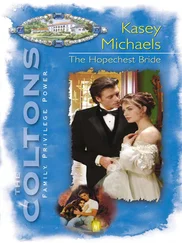Jerzy Kosiński - The Painted Bird
Здесь есть возможность читать онлайн «Jerzy Kosiński - The Painted Bird» весь текст электронной книги совершенно бесплатно (целиком полную версию без сокращений). В некоторых случаях можно слушать аудио, скачать через торрент в формате fb2 и присутствует краткое содержание. Год выпуска: 1965, ISBN: 1965, Жанр: Детская проза, на английском языке. Описание произведения, (предисловие) а так же отзывы посетителей доступны на портале библиотеки ЛибКат.
- Название:The Painted Bird
- Автор:
- Жанр:
- Год:1965
- ISBN:978-0-8021-9575-3
- Рейтинг книги:4 / 5. Голосов: 1
-
Избранное:Добавить в избранное
- Отзывы:
-
Ваша оценка:
- 80
- 1
- 2
- 3
- 4
- 5
The Painted Bird: краткое содержание, описание и аннотация
Предлагаем к чтению аннотацию, описание, краткое содержание или предисловие (зависит от того, что написал сам автор книги «The Painted Bird»). Если вы не нашли необходимую информацию о книге — напишите в комментариях, мы постараемся отыскать её.
The Painted Bird — читать онлайн бесплатно полную книгу (весь текст) целиком
Ниже представлен текст книги, разбитый по страницам. Система сохранения места последней прочитанной страницы, позволяет с удобством читать онлайн бесплатно книгу «The Painted Bird», без необходимости каждый раз заново искать на чём Вы остановились. Поставьте закладку, и сможете в любой момент перейти на страницу, на которой закончили чтение.
Интервал:
Закладка:
One Sunday a group of village boys returning from church spotted me on the road. Too late for flight, I feigned indifference, and tried to conceal my fear. Passing by, one of them swung at me and pushed me into a deep, muddy puddle. Others spat straight into my eyes, laughing with each good hit. They demanded some “Gypsy tricks.” I tried to break away and run, but the circle tightened around me. Taller than I, they closed over me like a living net trapping a bird. I was afraid of what they might do. Looking down at their heavy Sunday boots, I realized that being barefoot, I could run faster than they. I singled out the largest boy, picked up a heavy stone, and smashed it in his face. The face crumpled and sagged under the blow; the boy fell down bleeding. The others recoiled with shock. In that moment I leapt over the boy and fled across the fields to the village.
When I reached home I looked for the farmer to tell him what had happened and to seek his protection. He had not yet returned from the church with the family. Only the old toothless mother-in-law was wandering around the yard.
My legs went weak under me. A crowd of men and boys approached from the village. They waved clubs and sticks, coming closer with increasing speed.
This had to be my end. The father or brothers of the wounded boy were surely in the crowd and I could expect no mercy. I dashed into the kitchen, shoveled a few glowing coals into my comet, and rushed to the barn, closing the door behind me.
My thoughts were scattering like scared chickens. The crowd would take me into its hands at any moment.
Suddenly I remembered the fuse and the mines. I dug them up quickly. With trembling fingers I stuck the fuse between the tightly lashed soaps and lighted it with the comet. The end of the fuse hissed, and the red spot started crawling slowly along the wick toward the soaps. I pushed it all under a pile of broken plows and harrows in a corner of the barn and frantically pried off a board in the back wall.
The crowd was already in the farmyard and I could hear their shouts. I grabbed the comet and scrambled out of the hole into the thick wheat behind the barn. I plunged into it and ran crouching under cover, boring my way to the forest like a mole.
I was perhaps halfway across the field when the ground shuddered from the explosion. I looked back. Two walls sadly leaning against each other were all that remained of the barn. Between them whirled a mass of splintered boards and swirling hay. A cloud of dust mushroomed above.
I rested after reaching the edge of the forest. I was glad to see that there was no fire at my master’s farm. All I could hear was the tumult of voices. No one followed me.
I knew I could never go back there. I continued into the forest, looking carefully through the undergrowth where there were still many cartridges, soaps, and fuses to be found.
9
I wandered for several days in the woods and made attempts to approach the villages. The first time I noticed people running from one house to another, shouting and waving their arms. I did not know what had happened, but it seemed wiser to stay away. In the next village I heard shots, which meant that either partisans or Germans were nearby. Discouraged, I continued my trek for another two days. Finally, hungry and exhausted, I decided to try the next village, which seemed quiet enough.
As I emerged from the bushes I nearly walked into a man plowing a small field. He was a giant with enormous hands and feet. Reddish whiskers covered his face, almost up to the eyes, and his long, disheveled hair stood up like a tangle of reeds. His pale gray eyes watched me warily. Trying to imitate the local dialect, I told him that for a place to sleep and a little food I would milk his cows, clean the stable, take the beasts to pasture, chop wood, set snares for game, and cast spells of all kinds against human and animal ills. The peasant listened carefully, and then took me home without saying a word.
He had no children. His wife, after arguing with some neighbors, agreed to take me in. I was shown a sleeping place in the stable and told my duties.
The village was poor. The huts were built of logs plastered on both sides with clay and straw. The walls were sunk deeply in the ground and supported thatched roofs crowned with chimneys made of willow and clay. Only a few of the peasants had barns, and these were often built back to back to save one wall. Now and then German soldiers from a nearby railroad station came to the village to take any food they could find.
When the Germans were approaching and it was too late to run for the woods, my master hid me in a skillfully camouflaged cellar beneath the barn. Its entrance was very narrow and it was at least ten feet deep. I had helped dig it myself, and no one else, other than the man and his wife, knew of its existence.
It had a well-stocked larder with large lumps of butter and cheese, smoked hams, strings of sausages, bottles of homemade liquor, and other delicacies. The bottom of the cellar was always cool. While the Germans rushed all over the house searching for food, chasing pigs in the fields, clumsily trying to catch chickens, I sat there absorbing the delicious fragrances. Often the soldiers stood on the board covering the entrance to the cellar. I used to hold my nose to avoid sneezing as I listened to their strange speech. As soon as the sound of the army trucks died into the distance the man would pull me up out of the cellar to resume my usual duties.
The mushroom season had begun. The hungry villagers welcomed it and went into the woods for their rich harvest. Every hand was needed and my master always took me along. Large parties of peasants from other villages roamed the woods in search of the small growths. My master realized that I looked like a Gypsy and, anxious not to be denounced to the Germans, he shaved my black hair. When going out I put on my head a large old cap that covered half of my face and made me less conspicuous. Still, I felt uneasy under the suspicious glances of the other peasants, so I tried always to stay close to my master. I felt that I was sufficiently useful to him to be kept for a while.
On the way to the mushroom gathering we crossed the railroad running through the forest. Several times a day great puffing locomotives passed pulling long freight trains. Machine-guns thrust out of the roofs of the cars and rested on a platform in front of the steam engine. Helmeted soldiers scanned the sky and woods with binoculars.
Then a new kind of train appeared on the line. Living people were jammed in locked cattle cars. Some of the men who worked at the station brought news to the village. These trains carried Jews and Gypsies, who had been captured and sentenced to death. In each car there were two hundred of them stacked like cornstalks, arms raised to take up less space. Old and young, men, women, and children, even babies. Often the peasants from the neighboring village were temporarily employed on the construction of a concentration camp and brought back strange tales. They told us that after leaving the train the Jews were sorted into different groups, then stripped naked and deprived of all their possessions. Their hair was cut off, apparently for use in mattresses. The Germans also looked at their teeth, and if there were any gold ones they were immediately pulled out. The gas chambers and ovens could not cope with the great supply of people; thousands of those killed by gas were not burned but simply buried in pits around the camp.
The peasants listened to these stories thoughtfully. They said the Lord’s punishment had finally reached the Jews. They had deserved it long ago, ever since they crucified Christ. God never forgot. If He had overlooked the sins of the Jews so far, He had not forgiven them. Now the Lord was using the Germans as His instrument of justice. The Jews were to be denied the privilege of a natural death. They had to perish by fire, suffering the torments of hell here on earth. They were being justly punished for the shameful crimes of their ancestors, for refuting the only True Faith, for mercilessly killing Christian babies and drinking their blood.
Читать дальшеИнтервал:
Закладка:
Похожие книги на «The Painted Bird»
Представляем Вашему вниманию похожие книги на «The Painted Bird» списком для выбора. Мы отобрали схожую по названию и смыслу литературу в надежде предоставить читателям больше вариантов отыскать новые, интересные, ещё непрочитанные произведения.
Обсуждение, отзывы о книге «The Painted Bird» и просто собственные мнения читателей. Оставьте ваши комментарии, напишите, что Вы думаете о произведении, его смысле или главных героях. Укажите что конкретно понравилось, а что нет, и почему Вы так считаете.
